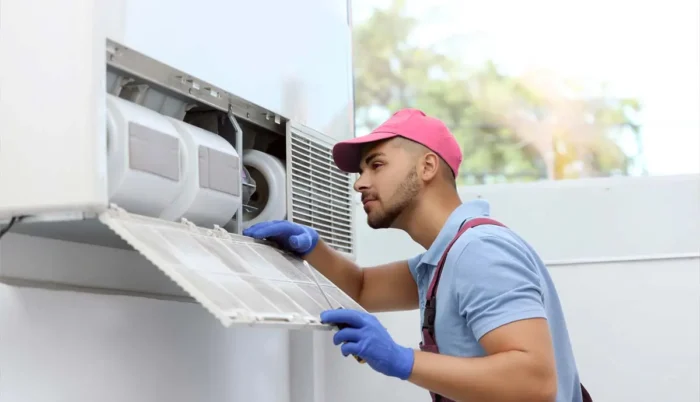
The Heating, Ventilation, and Air Conditioning (HVAC) industry is responsible for the comfort, health, and energy efficiency across homes, businesses, and industrial spaces.
As technology advances and our demands for more sophisticated climate control solutions grow, so does the complexity of decisions related to the installation, maintenance, and upgrade of HVAC systems.
This has given rise to the specialized roles of HVAC brokers and consultants, who guide clients through these difficult decisions. However, with such responsibility comes the need for stringent ethical practices.
In an industry where choices can significantly impact both environmental sustainability and consumers’ financial well-being, the ethical implications of brokering and consulting cannot be overstated. In light of the evolving market dynamics and increasing consumer awareness, ethical behavior in HVAC consulting and brokering has never been more relevant.
This article elucidates why ethics are integral to the HVAC brokering and consulting business. We explore common ethical concerns, the best practices to address them, and emphasize the importance of maintaining integrity in this profession. This article seeks to affirm that in the world of HVAC, where technology and trust intersect, ethics should remain the guiding light.
HVAC Brokering and Consulting
HVAC brokering and consulting are specialized roles that have emerged in response to the complex and varied needs of the Heating, Ventilation, and Air Conditioning industry. An HVAC broker acts as an intermediary, connecting buyers with suitable sellers or products, often facilitating transactions and negotiations for HVAC systems or services.
On the other hand, an HVAC consultant provides expert advice, assessments, and recommendations tailored to individual client needs, be it for installation, maintenance, or upgrades. While brokers focus on streamlining the purchase process and ensuring the best deals, consultants prioritize a deep understanding of a client’s specific requirements, offering technical guidance and ensuring optimal system performance and efficiency.
Importance of Ethics in HVAC Brokering and Consulting

Establishing Trust with Clients and Stakeholders
Ethical practices foster confidence, ensuring that clients and stakeholders can rely on the transparency and integrity of brokers and consultants.
Maintaining a Sustainable Business Model
Ethical behavior is not just a moral imperative; it’s a business necessity. Companies rooted in ethical principles tend to attract loyal customers and enjoy longevity, safeguarding their reputation and financial health.
Potential Harm from Unethical Behavior
Unethical actions in HVAC brokering and consulting can lead to substantial negative consequences. Beyond immediate financial losses, consumers may face long-term system inefficiencies, while the broader industry can suffer from a tarnished reputation and reduced public trust.
Common Ethical Concerns

Transparency in Fees and Charges
A pressing ethical concern in the HVAC industry centers on clarity regarding fees and charges. Clients deserve a clear understanding of the costs involved, ensuring they aren’t faced with hidden fees or unexpected expenses.
Conflicts of Interest
Potential conflicts of interest can arise, clouding the judgment of professionals. It’s imperative that brokers and consultants prioritize clients’ needs over personal or third-party gains.
Providing Unbiased Recommendations and Advice
For clients to fully trust their HVAC professionals, they must feel confident in the unbiased nature of the advice given. Consultants and brokers must avoid favoritism or biases that might skew their recommendations away from a client’s best interest.
Deceptive Marketing Practices
Ethical concerns also extend to how HVAC services and products are marketed. Deceptive tactics or misleading claims not only breach trust but can lead to clients making uninformed decisions that may not serve their best interests.
Best Practices for Ethical HVAC Brokering and Consulting

Adopting a Code of Ethics
To establish a strong ethical foundation, HVAC professionals should adopt a comprehensive code of ethics. This code serves as a guideline for appropriate behavior, outlining the standards and values that should underpin every business decision and client interaction.
Ensuring Full Transparency in Transactions and Recommendations
Transparency serves as the foundation for building and maintaining trust. Brokers and consultants should provide clear, honest insights into their transactions, ensuring that recommendations are made with the client’s best interest in mind and devoid of any hidden motives or agendas.
Continuous Training and Updating of Knowledge
Regular training in this constantly evolving industry ensures that brokers and consultants are equipped with the latest knowledge, enabling them to provide advice that is both current and technically sound.
Encouraging Feedback and Open Communication with Clients
Open lines of communication foster a healthier relationship between professionals and clients. Encouraging feedback allows HVAC brokers and consultants to address concerns, clarify doubts, and continuously improve their services based on client needs.
Aligning Practices with Industry Standards and Regulations
Compliance with industry standards and regulations is not only a legal requirement but also an ethical one. By aligning their practices with established norms, HVAC professionals ensure safety, efficiency, and consistency in their services, reinforcing their commitment to excellence.
The Future of HVAC Brokering and Consulting: Staying Ethical

The future of HVAC brokering and consulting is poised to be shaped by both technology and heightened ethical considerations. As we move forward, the integration of advanced technology and data analytics will become indispensable, enabling professionals to make more informed decisions tailored to individual client needs.
This technological progression, however, will need to be tempered by diligent oversight from government regulations and industry bodies to ensure ethical practices are upheld. With the increasing emphasis on sustainability, energy efficiency, and consumer rights, we can anticipate a surge in ethical concerns related to transparency, green practices, and consumer empowerment in the coming years, further underlining the importance of maintaining a steadfast commitment to ethical principles in the HVAC domain.
The HVAC industry, with its blend of technology and trust, demands a steadfast commitment to ethical practices. As brokers and consultants continue to prioritize transparency, continuous learning, and client-centric approaches, they not only uphold the integrity of their profession but also pave the way for a future where consumers and the environment alike benefit from their expertise and dedication.








